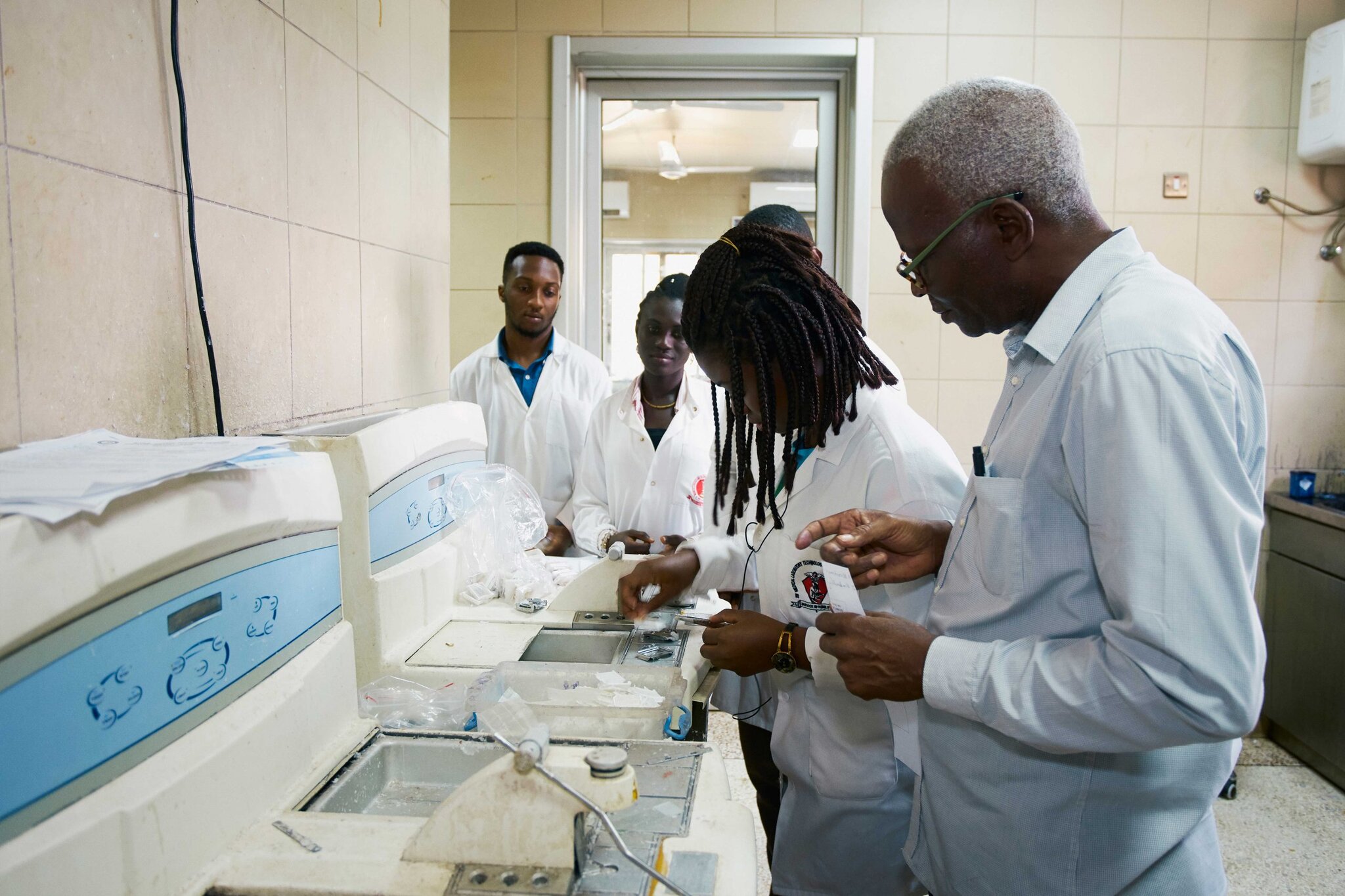
- C/Can highlights importance of a systems approach to strengthen quality cancer care and improve patient outcomes in LMICs
- C/Can and Kumasi will work together to address local cancer care gaps identified by the city through the C/Can model
- Quality improvements in diagnostic systems a key feature of this new initiative
Building on its existing collaboration with the city of Kumasi (Ghana) to increase access to quality cancer care, City Cancer Challenge Foundation (C/Can) will work with local teams to ensure cancer patients receive accurate, timely cancer diagnosis through improvements in services, infrastructure, health workforce and health technologies. The six-month project, “Strengthening Health Systems Capacity to Meet Local Needs”, will set up and harness the knowledge and connections of a multisectoral coalition of local and global partners from the public and private sectors to achieve lasting change in Kumasi.
Germany’s Federal Ministry for Economic Cooperation and Development (BMZ) has committed to bolster efforts to improve cancer care in Kumasi, Ghana. The project will be implemented by C/Can and a multisectoral group of stakeholders in Kumasi, with the support of Deutsche Gesellschaft für Internationale Zusammenarbeit (GIZ) on behalf of the BMZ.
C/Can CEO Susan Henshall said: “This new commitment will strengthen and accelerate all of the collective efforts of the city of Kumasi and Ghana to achieve quality improvements in diagnosis and treatment.”
Dr Henshall added that “This support will provide important capacity development opportunities for pathology and diagnostic imaging experts in Kumasi. The application of innovative health technologies to improve the health system capabilities for testing will also ensure healthcare workers have the data they need, and when they need it to better inform clinical decision-making.”
Supporting C/Can’s mission in Kumasi and beyond
Located within one of the fastest-growing regions in Ghana, Kumasi provides health services to close to five million people. Since 2019, with the strong support of the Ministry of Health and the Ghana Health Service, Kumasi has utilised the City Cancer Challenge City Engagement Process Framework to drive a staged city-wide process to assess, plan, and execute locally adapted cancer solutions designed to strengthen the health system’s building blocks.
As part of this process, 258 health professionals from 38 institutions were brought together across Kumasi to carry out a needs assessment to identify key priorities in cancer diagnosis and treatment. This confirmed that most cancer patients there experience delays in the period between symptom discovery and the start of treatment, highlighting a critical need to remove health system barriers to timely and accurate diagnosis and staging.
Dr Ernest Baawuah Osei-Bonsu, Head of the Oncology Directorate at Komfo Anokye Teaching Hospital and member of the C/Can City Executive Committee in Kumasi, highlighted the importance of the grant for the city and the role of C/Can in identifying how best to improve access to cancer care.
“The needs assessment process we undertook involving a wide range of local stakeholders over the last two years means that we will now be able to implement sustainable quality improvements, notably speeding up the time taken to provide accurate cancer diagnosis.”
Responding to gaps identified by local stakeholders.
In particular, in order to strengthen the availability of priority technologies, C/Can will continue to work closely with the local experts and suppliers selected to implement solutions in the medium term on the requirements for a city-wide Laboratory Networking System for pathology testing. Similarly, C/Can will contribute toward developing and implementing a standardised pathology reporting system in the main laboratories in Kumasi.
Leveraging multisectoral partnerships for sustainability
This new commitment will make a major contribution to strengthening the health ecosystem of Kumasi by convening a targeted coalition of local and global partners able to focus on boosting local capacity, improving accountability in the delivery of cancer care, and strengthening vital leadership skills to ensure long-term sustainability. In particular, the leaders of the coalition will focus on strengthening skills to effectively coordinate, operationalise and sustain a collaborative multisectoral network.





